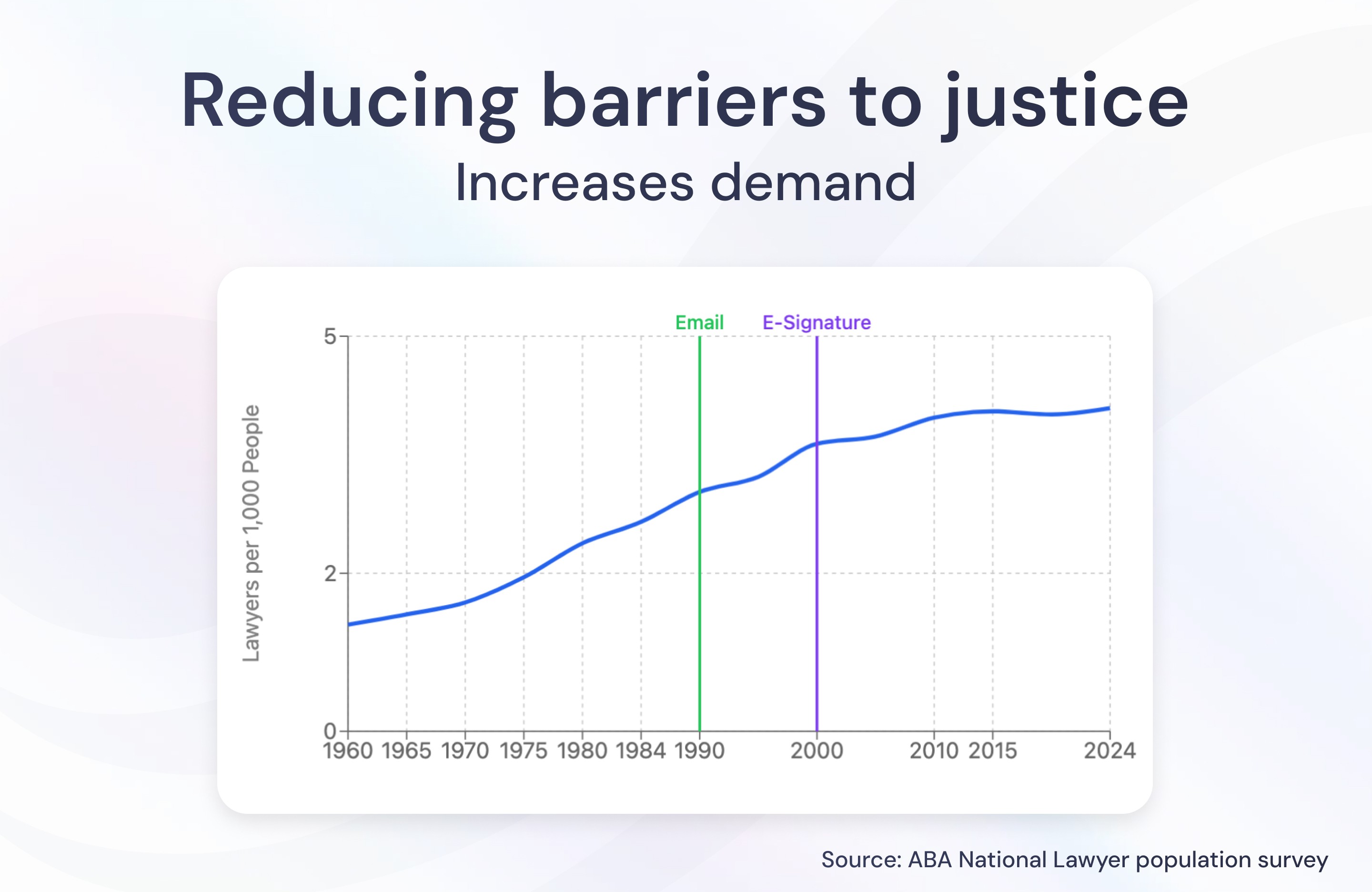Wordsmith presented their view on the future of AI and how this is going to transform the lives of lawyers
Nov 13, 2024
The Future of AI in Law: Key Takeaways from the Law Society of Scotland Event
At the recent Law Society of Scotland event, Wordsmith AI headlined the event and outlined some of the powerful forces that are at play in the legal profession. The discussion, led by our CEO, Ross McNairn, touched on several key points, all aimed at understanding the practical implications of AI advancements for legal professionals. Here are the highlights:
1. The more productive lawyers are, the more lawyers we need
The legal industry has embraced previous waves of technological change, email, the word processor, and each time, these innovations have only expanded the number of professionals and the demand for legal services. Just as past tools didn't eliminate lawyers but helped them handle more work, AI is poised to do the same, providing a new layer of support without reducing demand for skilled legal minds.
2. Streamlining Mundane Tasks
AI is uniquely positioned to take on repetitive, low-value tasks that bog down legal teams. By automating these basics, AI empowers lawyers to focus on high-impact, strategic work, benefiting firms and clients alike. It’s a way of offloading mundane tasks that everyone can get behind.
3. Simplicity of Language Interfaces
A major advantage of modern AI tools is their language-based interfaces, which are far more intuitive than traditional software. With natural language as the primary interface, AI becomes immediately usable for lawyers, making it easier to adopt without intensive training.
4. Consolidation of Tools Saves Money
AI not only accelerates workflows but also offers cost-saving opportunities by consolidating multiple tools into one. Instead of paying for a range of single-function software, law firms can leverage comprehensive AI solutions to cover multiple needs, reducing expenses and streamlining operations.
5. Faster Service Wins
Speed remains a competitive edge in the legal sector, and AI enables teams to deliver faster, more responsive services. Firms that integrate AI tools into their processes are positioned to provide quicker turnaround times, meeting client demands promptly and gaining a competitive advantage.
To hear Ross’s full discussion on the future of AI in law, check out the event video. It’s an essential watch for anyone looking to stay ahead in a rapidly evolving field.



